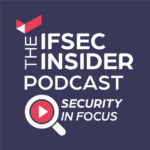Most of us can remember where we were and what we were doing on the morning of September 11, 2001.
Me? I was sunbathing on a beach in Ibiza and listening to Coldplay’s debut album by way of a silver Sony Walkman — very sophisticated gadgetry at that time, don’t you know — while surrounded by a group of my closest friends.
Initial reports filtered through suggesting to us all it might have been a small, light aircraft that initially struck one of the Twin Towers.
The enormity of how wrong that rumour had been was there for all to see when we arrived back to our hotel and stared in disbelief at the CNN channel. We stared in disbelief and utter silence, in fact, for well over an hour. An unforgettable experience.
Come the early afternoon, my mobile phone was ringing on a constant basis with colleagues and contacts offering news and stories around the unfolding tragedies in Manhattan and Washington.
It was difficult for me to think straight, much less focus on how to approach reporting on such an incident, the like of which we’d never even comprehended, never mind witnessed.
Commercial aircraft being used as missiles? Unthinkable, but now it was a real-time scenario.
In the intervening decade and more, the horror of 9/11 has never dissipated. If anything, it has been magnified.
Rick Rescorla
Across the two-week period leading up to the next anniversary, each year myriad documentaries can be seen on satellite TV recounting elements of the tragedy. I’ve watched them all, over and over again. The one about recordings of the last telephone calls made by people inside the Twin Towers. The one about the two young film-makers who happened to be stationed with New York’s Fire Department that week to make a documentary.
And the one about Rick Rescorla, the head of security at Morgan Stanley, whose expert security management regime meant that 2,700 employees of that company working in the South Tower made it to safety.
Rick died (along with six other colleagues) because he went back into the building to help save others.
Twelve years on from 9/11 and eight years after 7/7, the main question to be addressed is still as salient and important today as it ever was: “Have the security lessons been learned?”
On the micro level, we still travel on the London Underground and witness bags left unattended by the train doors or on seats in the stations. It remains the case that too many people just accept it, question nothing, and move on. It’s almost as if our society is afraid to highlight anything that doesn’t fit in with the accepted daily norm.
So many people still moan in airport queues because they have to pass through x-ray machines. This necessarily means the removal of belts and shoes from the person as well as laptops from their cases. How inconvenient and time-consuming it must be for these misguided souls.
On the macro level, despite what happened in New York, there’s still a propensity for architects to “design high” in major world conurbations. We all know that inner city space is at a premium and costs wild amounts of money, but where does safety come into the equation?
In the boardrooms, for the most part, security remains a grudge purchase. It’s viewed as a drain on the bottom line. A necessary expense paid to satisfy insurers but one that isn’t really welcomed.
Unbelievable, isn’t it? How could anyone watch those documentaries about 9/11 and continue to hold such views? It’s beyond my comprehension.
Like I said, no one ever thought commercial aircraft could be turned into weapons of terrorism and mass destruction. After 9/11, though, anything is possible and any potential risk or threat — as much as it is practicable to do so — has to be planned for and considered.
What we must never become is complacent around our security — be it individual or collective.
Don’t be afraid to question what you see. Don’t be afraid to do what Rick Rescorla did and constantly bang the drum for security in front of those who hold the budgets.
Rick saved so many lives because of his unstinting belief in the doctrines of professional security and safety management.
Let’s resolve here and now, to honour, remember, and put into practice that belief every day of the year.
Listen to the IFSEC Insider podcast!
Each month, the IFSEC Insider (formerly IFSEC Global) Security in Focus podcast brings you conversations with leading figures in the physical security industry. Covering everything from risk management principles and building a security culture, to the key trends ahead in tech and initiatives on diversity and inclusivity, the podcast keeps security professionals up to date with the latest hot topics in the sector.
Available online, and on Spotify, Apple Podcasts and Google Podcasts, tune in for an easy way to remain up to date on the issues affecting your role.
